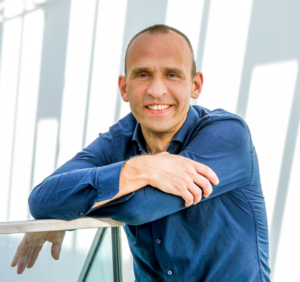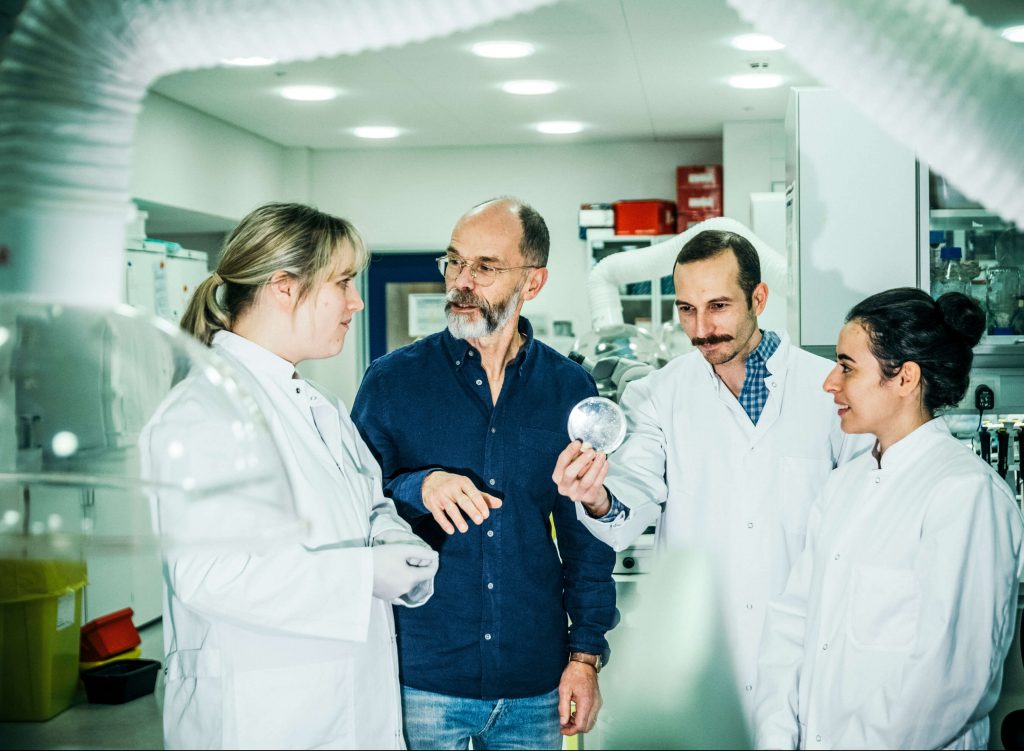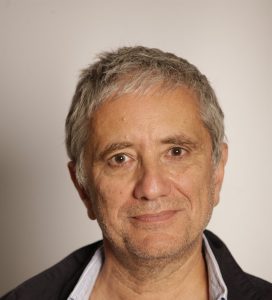Our mission
First generation
cell-therapy
People living with Type 1 Diabetes need to take insulin daily to manage their blood glucose (sugar) levels. They do this using either injections or an insulin pump.
However, it can be difficult to achieve a well balanced management of blood glucose levels using current methods. Mismanagement of blood glucose levels puts people at risk of hypoglycemia and long-term health complications.
Scientists and health-care practitioners believe cell therapies could be a more sustainable solution for people living with diabetes. Cell therapies replace the damaged beta cells in people living with Type 1 Diabetes, removing the need for patients to manage their own insulin levels.
ISLET aims to deliver a first generation cell-therapy product consisting of insulin-producing beta cells, made from stem cells in the lab. We can already generate these cells in the lab. Our next step is to pioneer a manufacturing pipeline to produce these beta cells at clinical grade, ready to use in phase 1 clinical trials by 2025.
Next generation
cell-therapy
All diabetes focused cell-therapy products in development aim to reproduce the function of islets in a person’s body. Islets are the clusters of cells found within the pancreas that mainly contain insulin-producing beta cells and glucagon-producing alpha cells.
For some people affected by Diabetes Type 1 the disease progresses to a life threatening condition. A handful of these people will be offered a ‘scarce’ treatment – the transplantation of human islet cells from deceased donors. The glucose levels and metabolic function seen in a person after transplant, is far superior to those using insulin injections or pumps (the current therapy that replaces beta cell function alone). Therefore, our scientists think that it is only by combining alpha and beta cells in one product will a cell-therapy effectively mimic a normal islet’s function.
To make headway with this next generation therapy, ISLET aims to engineer islet-like clusters, containing beta and alpha cells from stem cells in the lab. We will create ways of scaling up their production, ready for clinical grade manufacture by 2025.
Pipeline
to patients
Transforming a scientific discovery to a working therapy is a complex process and steps need to be taken to ensure it is scalable, safe and effective. Our unique team has experts for every step. By combining the brightest ideas, state of the art resources and facilities we have the power to pioneer advanced cell therapies.
To bring our stem cell therapy for Type 1 Diabetes closer to reality, we will develop a pipeline with the following steps: a manufacturing process compliant with Good Manufacturing Procedures (GMP)*; pre-clinical product testing and product commercialisation.
We will also bring innovative solutions to a common challenge in stem cell therapy – evaluating the standard of the cell product. Our team will work to identify a unique combination of protein and genetic markers present only in islet cells. These markers will serve as a ‘gold standard’ signature to identify the best performing islet cells during manufacturing. As a result we will ensure that only effective islet cells will be supplied for use as a therapeutic product.
Through transparent communication and effective public engagement we will ensure that our framework for success is accessible to all. This legacy, we believe, will be invaluable for any scientific team embarking on the generation of an advanced cell therapy for disease.
*GMP – A code of standards concerning the manufacture, processing, packing, release and holding of a medicine that ensures the product is of high quality and fit for medical use. Find out more
Communication
and Collaboration
Those affected by diabetes provide a unique expertise and perspective to translational research; an insight into living with and managing a disease. We believe that it is only by scientists, clinicians and those living with diabetes working together, that the best therapies can be created. By collaborating with the diabetes community we aim to bring the voice of those living with Diabetes to the work of ISLET.
Advanced therapies are changing the landscape of future healthcare which will affect everyone. We think that advanced therapies will be more impactful if we engage the public in its development. Engagement can be in many forms, from listening to what people think of the science, providing accessible information to collaborating with stakeholders to improve approaches.
That is why we are committed to a transparent, ambitious, enabling and exciting programme of public engagement and communication. This way we are all part of mapping our futures.
Our team
ISLET is a collaboration of 11 European partners across 7 organisations. We bring together expertise in stem cell biology, lipidomics, proteomics, islet biology, computational biology, GMP manufacturing and clinical islet transplantation. In addition, the team is experienced in regulatory frameworks for ATMP production and commercialisation, inter-woven with the expertise of those with direct experience, living with diabetes.
The immensely talented pan-European team highlights the strength in collaboration between institutions. It is only by working together transparently in this way that we can fulfil the promise that stem cell technology offers to human health globally.

Professor Henrik Semb co-ordinates ISLET and brings the strength of the ambitious vision of innovating a finely-tuned cell therapy to patients with Type 1 Diabetes.
It was his leadership during the five-year EC funded project HUMEN that saw the discovery of directing stem cells to produce beta cells in the lab. This work lays the foundation for the ISLET first generation product, which we will bring to the point of clinical trial in 2025.
Professor Semb is the Director of The Institute of Translational Stem Cell Research at Helmholtz, Munich. Scientifically, the Semb group has expertise in developmental biology, specifically of the pancreas, and has two main goals. One, to better understand how progenitor cells of the pancreas are instructed to make the two main cells found in Islets – beta and alpha cells. This knowledge is needed to create islets for transplant in our next-generation cell-therapy. Their second goal is to translate this knowledge into the development of cell – therapy for those with diabetes, pioneering the complex landscape to make this happen.


Carsten Marr
Carsten Marr received his diploma in general physics from the Technische Universität München in 2002. He wrote his thesis at the Max-Planck-Institute for Quantum Optics (Garching, Germany) and visited the Quantum Information and Quantum Optics Theory Group at Imperial College (London, UK) in 2003. In 2004, he received a PhD fellowship from the Technische Universität Darmstadt and joined the Bioinformatics group there, working on dynamical processes on graphs. He received his PhD 2007 and worked at Jacobs University Bremen as a postdoctoral fellow, focusing on gene regulatory networks. In 2008 he joined Helmholtz Munich as a PostDoc in the Institute for Bioinformatics and Systems Biology working on the quantification, analysis, and modelling of stem cell data. In 2011, he worked on pluripotency and stochastic descriptions of gene expression at the University of Edinburgh with a stipend from the Deutsche Forschungsgemeinschaft. He became deputy director and group leader at the Institute of Computational Biology in 2013. In 2017, he received the Erwin-Schrödinger Prize and the CSB2 Prize in Systems Biology for his interdisciplinary contributions to the quantification of single blood stem cells. In 2019, he received an ERC Consolidator Grant for establishing Computational Hematopathology. Since 2021 he is director of the Institute of AI for Health (AIH) at Helmholtz Munich.

The main current research focus of Professor Matthias Mann’s laboratory is to identify novel biomarkers that can be used for patient diagnosis and possibly for the prevention and treatment of metabolic diseases, such as diabetes and cancer.
The Mann group has pioneered the development of plasma proteome profiling conducting studies with more than 1,200 samples. For tissues, they have developed a streamlined workflow that can utilise formalin-fixed paraffin-embedded archived material of hundreds of patients to a great depth in a highly reproducible manner. Building on their achievements, the Mann group has coupled mass spectrometry with artificial intelligence-guided high-resolution laser microdissection to analyze the proteomes of cells at high accuracy and sensitivity.
The Mann group’s expertise in identifying and analysing cell markers means ISLET will spearhead efficient processes for detecting which beta cells and islet cells will be the most viable for transplant, currently a major roadblock in the cell-therapy pipeline to patients.

Professor Heiko Lickert is the director of the Institute of Diabetes and Regeneration Research (IDR) at the Helmholtz Zentrum München (HMGU). In the research group of Professor Lickert they aim to improve current strategies for functional ß-cell production in vitro from pluripotent stem cells with the ultimate goal to provide alternative sources of ß-cells for therapy. Additionally, they analyze and characterize embryonic and adult pancreatic progenitor cells to understand ß-cell development, control and function for in vivo regeneration.
The extensive expertise of Heiko Lickert will allow ISLET to innovate strategies for the production, isolation and characterisation of islet cells for our next-generation product.

Mina is a scientist and scientific project manager at the Institute for Translational Stem Cell Research at HMGU. The group has a strong expertise in the differentiation of human pluripotent stem cells (hPSCs) to insulin-producing beta cells. Particularly, in the functional characterisation and up-scaled production of insulin-producing beta cells, for human therapeutic use.
Her expertise combined with that of Micha Drukker will adapt the protocol we have for producing glucose-responsive beta cells, for manufacturing our first generation product. The GMP-compliant clinical-grade cells produced will be ready for the first human clinical trials. Mina’s expertise will allow close work with regulatory bodies and licensing to develop a finished advanced therapy product.

Dr. Micha Drukker leads the induced pluripotent stem cell unit at HGMU. His interests involve both basic and applied research of human pluripotent stem cells. His group investigates mechanisms that regulate the differentiation of human developmental progenitor cells, including the foregut and the peripheral nervous system. Dr. Drukker’s core facility is leading clinical-grade manufacturing of human induced pluripotent stem cells from donors that are immunologically matched to one hundred million individuals from European ancestry.
Dr. Drukker’s team brings to the ISLET consortium vast experience in translating research grade protocols to clinical grade standards (GMP) including human pluripotent stem cells and their differentiation to therapeutic cell populations.

The major objective of Professor Raphael Scharfmann’s group is to better understand pancreatic beta cell development, a basis for the development of new therapies of diabetes. The group looks in detail at what signals and environments trigger the development of beta cells from the early beginnings in the embryo. Using both rodent models and human cells the work creates a detailed pathway for producing functional beta and other islet cells from stem cells.
The Scharfmann group brings to ISLET expertise in creating the most efficient protocols for producing functioning islet cells most closely like those found in healthy human adults.

Eelco de Koning is Professor of Diabetology in the Islet group of Leiden University and directs the clinical islet transplantation program in the Netherlands. The Islet group includes an islet isolation laboratory and clinical islet transplantation program. The combined facility allows basic and clinical research programs involving human islet cells. Basic research focuses on human islet cell identity, islet survival and function, and strategies in order to generate new insulin-producing cells. Clinical research is focused on improvement of current human islet isolation and beta cell replacement therapy, and on assessment of islet function and damage in people with severe beta cell failure (in particular type 1 diabetes).
Eelco’s group brings essential expertise of current islet isolation and transplantation to bring ISLETs first and next generation cell-therapy products to people with diabetes. They will lead the pre-clinical and efficacy testing and developa set of release criteria related to the characterisation and functionality of the ISLET advanced therapy cell products to ensure they are of clinical standard.

Kai Simons is the founder and CEO of the company Lipotype. Lipotype has developed a comprehensive, high throughput, and quantitative platform for analysing lipid profiles in mixtures of cells.
The main technical hallmarks of this technology are: (i) it is comprehensive, allowing the quantification of up hundreds of lipid types; (ii) it is high-throughput; (iii) it provides “absolute” quantifications, (iv) it is reproducible (v) it is transferable, allowing the direct comparison of data acquired in different sites;(vi) and is certified for good manufacturing practice (GMP).
Most cell lipids are precisely regulated so that the overall lipid composition in different cell types is maintained and fine-tuned in each cell membrane.
Lipotype will contribute its lipid analytics as well as its lipid knowhow to the ISLET project with the main goal to establish a robust assay for quality control of beta cell transplants.

The International Diabetes Federation (IDF) Europe is an umbrella organisation representing 70 national diabetes organisations in 44 countries across Europe. IDF is a diverse and inclusive multicultural network of national diabetes associations, representing both people living with diabetes and healthcare professionals. IDF Europe’s mission is to unite the voice of people living with diabetes and engage all stakeholders in creating a person-centred diabetes ecosystem. Key priorities include improving access to medicines and the quality of life for people living with diabetes; increasing the voice of those affected on all levels; as well as reducing diabetes incidence and preventing complications. Through generating and providing expertise and up-to-date evidence on diabetes, supporting awareness campaigns through a wide network of partners and stakeholders, and working with European and International institutions and organizations, IDF aims to influence policy, promote the exchange of best-practice and high-quality information and ultimately improve health outcomes and the lives of people living with diabetes.
IDF brings to ISLET the voice of those affected by diabetes, ensuring that our work is relevant to those that the cell-therapies may help, thereby creating the most impact. With an expert team of communication and advocacy professionals ISLET benefits from dissemination expertise, ensuring our work will reach both those affected by diabetes and health professionals working with those with diabetes.















Comments and Questions
0 comments